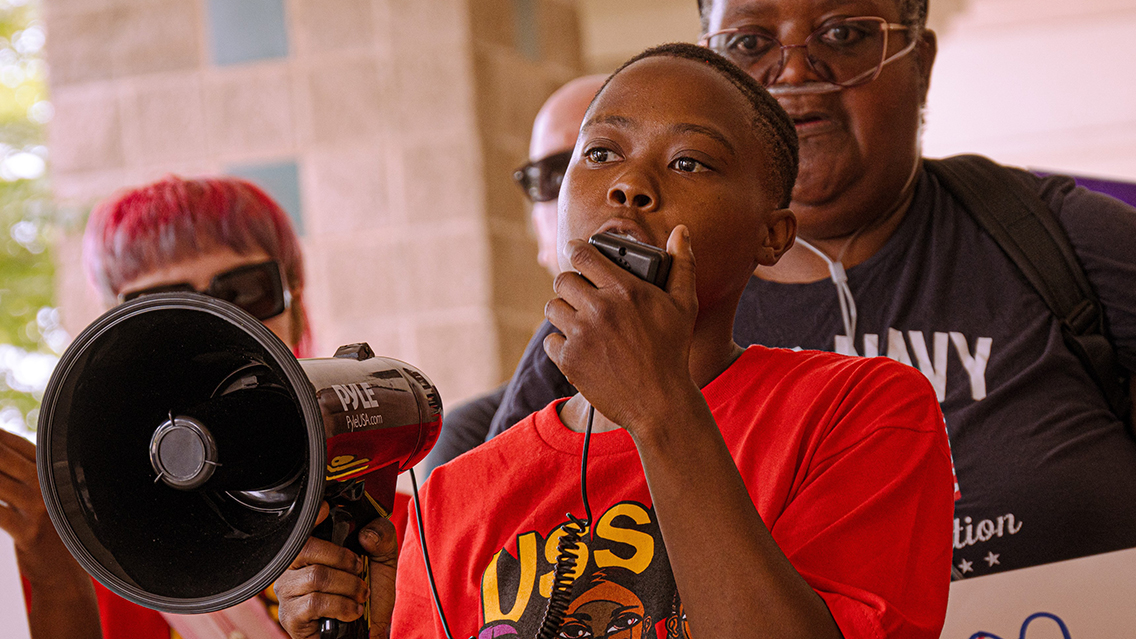Social movement organizers and leaders from across the US will gather in Atlanta, Georgia, on September 2, for the International People’s Assembly-North America conference titled “Dilemmas of Humanity: A Socialist Horizon”. They will meet at the city’s historic “Neighborhood Church” to deliberate on questions including “What will a new society run by workers look like? How will we reverse the climate crisis and restore our relationship to the earth? What could global cooperation look like without US imperialism?”
This conference will take place in the context of dire financial hardships for the people of the US. The US Census reports that out of over 230 million people surveyed, nearly 70% struggle to pay basic weekly living expenses. Wage stagnation has plagued the US working class since the inauguration of the neoliberal era in the early 1970s, and workers today are still enduring poor working conditions brought about by deindustrialization and the decimation of unionized labor.
People in the US have also seen a decline in basic human rights brought about by the rise of mass incarceration and the use of police brutality and urban warfare tactics.
In spite of these interlocking struggles, working people in the US have fought back. Atlanta is a major site of resistance as residents fight against the construction of a multi-million dollar police training facility dubbed “Cop City” that will train officers in repression tactics, and destroy part of the Weelaunee Forest. The struggle against police killings of unarmed Black men has generated mass movements of millions throughout the country in the past few years. Some political prisoners who fought to liberate Black people and the entire working class in the movements of the 60s and 70s have successfully won their release.
A resurgence of a militant labor movement is fighting wage stagnation and the trend of the rich getting richer as the poor get poorer. 340,000 UPS Teamsters are hot off the heels of their recent historic contract victory. UPS workers will see record raises in pay and living standards, as well as an end to a widely unpopular two-tier system. 144,000 United Auto Workers have just recently kicked off a contract campaign inspired by the Teamsters win. Auto workers are some of the most affected by deindustrialization, and are determined to fight to win their living standards back—and more. UAW President Shawn Fain has made headlines by calling for a 32-hour workweek.
The US has a high concentration of low-wage service jobs, especially in the South. Organizing this sector, with high levels of turnover and precarity, is some of the most challenging labor organizing there is. But new formations such as the Union of Southern Service Workers, which will be attending the Atlanta conference, are determined to succeed. “We are fighting to transform our low wage, high turnover jobs into good union jobs,” writes the USSW. “Throughout history, workers in the South—especially Black and brown workers—have been excluded from the right to form a union. This history of exclusion continues today with low-wage service workers. For most of us, it is almost impossible or completely impossible to form a union through the existing rules.
“We are building a union despite the fact that the rules are rigged against us as Southern workers. We are building a union by any means necessary, and building it in a way that makes sense for us.”
Estevan Hernandez, an organizer based in Atlanta and a speaker at the conference, told Peoples Dispatch that a world run by workers must look completely different than how the world looks today. “People want safety, better jobs and education. Things like that would be our priority. It would be completely different than this society that’s run by a small group of billionaires and a corrupt, ineffective and racist government. Their priorities are funding for more racist police, deportations and war. We do all the work that makes society run so we should be the ones who have a say.”





